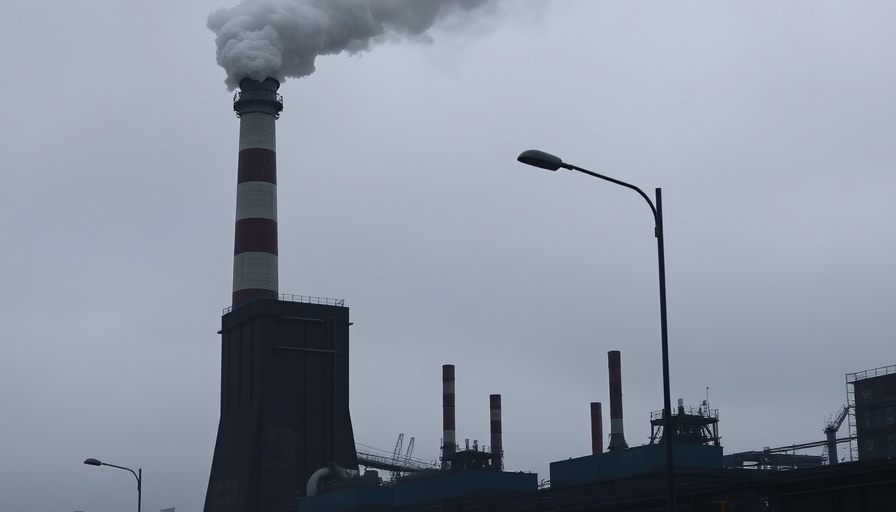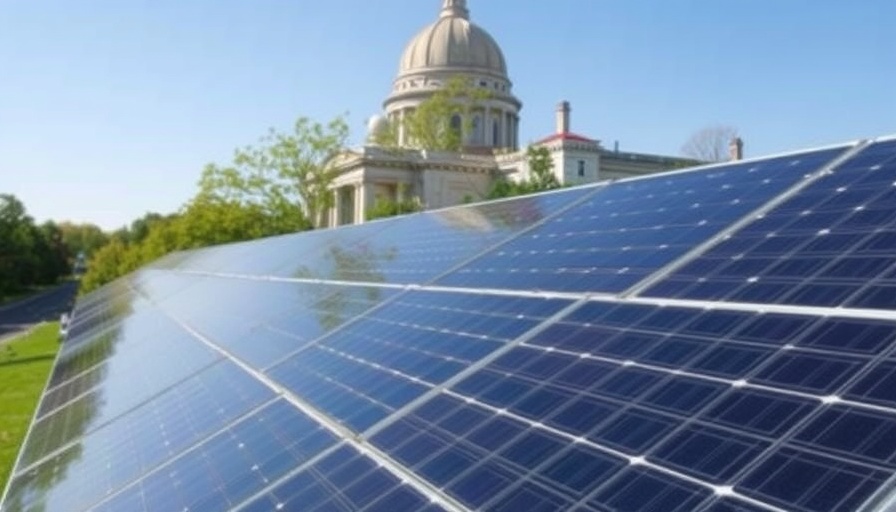
Reshaping Maryland's Energy Landscape: The Future of Trash Incineration
Amid growing environmental concerns and changing energy policies, a pivotal bill in Maryland seeks to end subsidies for trash incineration, a practice long deemed counterproductive within the renewable energy framework. Although stalled in committee, the bill—known as the Reclaim Renewable Energy Act—has garnered notable support from key legislators including Senate President Bill Ferguson. As the bill navigates potential integration into the expansive Next Generation Energy Act, its implications ripple through communities and environmental advocacy groups alike.
Connecting Communities: The Human Cost of Incineration
The push against trash incineration stems from the deeply felt impacts in surrounding communities. Residents like Mary Randall, who lives near the Baltimore City incinerator, express grave concerns about health issues attributed to emissions, noting higher cancer rates among her neighbors. These community voices highlight the broader human cost of maintaining an energy model that subsidizes pollution under the guise of renewable energy status. Advocacy groups view the proposed legislation not only as a policy change but as a necessary shift toward protecting vulnerable populations from environmental hazards.
Environmental Goals Versus Economic Realities
While the aim to phase out trash incineration aligns with environmental goals, opponents of the bill argue that removing these subsidies could hinder Maryland's ability to meet its renewable energy requirements. The current framework mandates that 35.5% of electricity must come from renewable sources, which includes trash incineration. Critics warn that eliminating these credits might force Maryland utilities to procure renewable energy from out-of-state sources instead, potentially raising costs and undermining local job support. The debate thus encompasses critical economic considerations alongside environmental imperatives.
Cultural Opposition: Songs and Advocacy
To amplify their cause, advocacy groups like Progressive Maryland have creatively utilized music to raise awareness about the plight of communities adversely affected by incineration. The recent release of a music video advocating for the bill’s passage has transformed complex legislative discussions into a cultural movement, with messages like "Burning trash has got to go" resonating with a wider audience. Such efforts illustrate how cultural engagement can enhance advocacy and bring previously siloed discussions into the public sphere.
The Public Balance: Polluter vs Renewable
Despite the clear energy and health discourse, the bill faces skepticism from factions who perceive it as part of a broader legislative agenda that may inadvertently harm economically disadvantaged communities. Neka Duckett-Randolph from the Out for Justice nonprofit expresses concern that integrating the incinerator bill into the Next Generation Energy Act—an initiative aimed at expediting new energy generation—could compound pollution issues in already burdened areas. This instance showcases the necessity of balancing public health with energy policy, ensuring equity for disadvantaged communities amongst energy advancements.
Anticipating the Future: Will Maryland's Strides be Genuine?
As the legislative session progresses, Maryland must grapple with its commitment to clean energy. The proposed bill represents a critical pivot point in the state’s energy policy, reflecting broader national trends seeking to redefine what constitutes renewable energy. If passed, this bill could catalyze a significant reduction in polluting energy sources, setting a precedent for other states while compelling local governments to innovate in producing truly sustainable energy.
For homeowners and eco-conscious consumers, becoming informed about developments like the Reclaim Renewable Energy Act is crucial. Engaging in local legislative processes can influence decisions that may enhance both property values and community health. As environmental and economic dynamics unfold, staying apprised of such changes is vital for personal and communal well-being.
Take action by contacting your local representatives to express your views on energy policies and their impacts on your community. Your voice matters in shaping Maryland's energy future!
 Add Row
Add Row  Add
Add 



 Add Row
Add Row  Add
Add 
Write A Comment